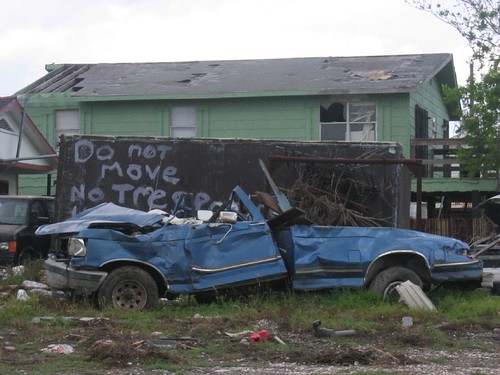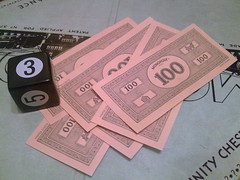
Four years ago, Hurricane Katrina slammed into New Orleans and threw the economy of the Gulf Coast into a tailspin. While national coverage has largely moved on, local broadcasters in these areas are still grappling with the storm’s lingering effects.
Radio news program Mississippi Edition at Mississippi Public Broadcasting in Jackson spoke with former Mississippi Governor William Winter and Richard Nathan of the Nelson A Rockefeller Institute of Government about how recovery is faring four years on.
Back in March, MPB analyzed the progress of where federal recovery money has gone and how it should be spent.
In 2005, David Lee Simmons left New Orleans following the hurricane and flood. Now’s he’s the Arts Contributor at Public Broadcasting Atlanta – one of thousands who moved to Atlanta after Katrina. PBA show City Café’s John Lemley program spoke with Simmons about his life has changed since the move.
There are several investigative projects that are looking at the Katrina recovery in various fields. ProPublica recently partnered with the New York Times to take a deeper look at health care after Hurricane Katrina. The Greater New Orleans Data Center is analyzing how New Orleans is faring in the national recession, by tracking neighborhood recovery indicators, and making local, state and federal policy recommendations. This piece from WWNO in New Orleans further reports on the GNODC’s work.
For more on the Hurricane Katrina anniversary, PRX has a playlist featuring stories ranging from how pets are faring since Katrina to the state of levees four years after they were destroyed.
Tonight on Tavis Smiley, historian Douglas Brinkley talks about his hometown and the recovery efforts in the context of other disasters in American history.

 Dante Chinni: Well, I’d been looking at these stories about gun makers recently. I knew from my travels to some of my communities that the gun run was a real story. People were telling me they couldn’t find ammo. So I thought, let’s see where the gun stores are located. Sure enough we found an interesting correlation.
Dante Chinni: Well, I’d been looking at these stories about gun makers recently. I knew from my travels to some of my communities that the gun run was a real story. People were telling me they couldn’t find ammo. So I thought, let’s see where the gun stores are located. Sure enough we found an interesting correlation.